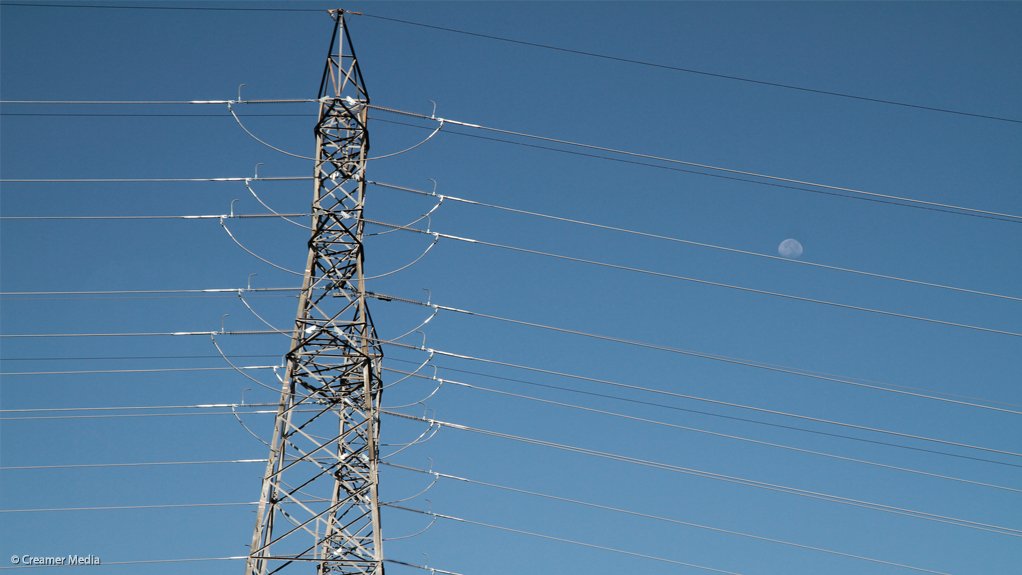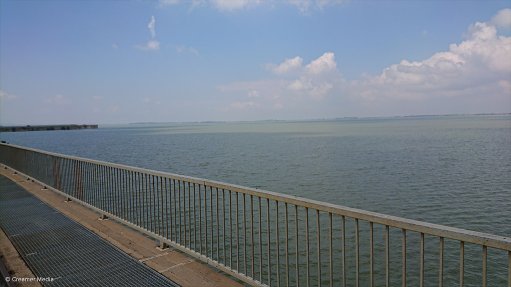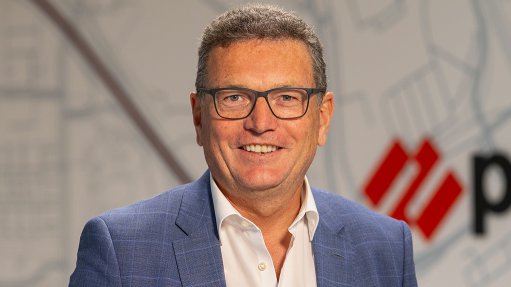Licensed electricity traders see Nersa rules process as opportunity to bolster certainty
Several licensed electricity traders canvassed by Engineering News have welcomed the decision by the regulator to initiate a process to finalise rules for domestic and cross-border trading and have also expressed an eagerness to participate in the process so that the outcome is fair, transparent, and non-discriminatory.
The National Energy Regulator of South Africa (Nersa) recently outlined a process and timeline for crafting a “fair and balanced framework for electricity traders”, with the intention of having the rules Gazetted by June next year.
Having already licensed some ten traders since 2014, Nersa also confirmed that these entities were entitled to continue operating while the rules were being finalised.
Engineering News subsequently approached several traders for their reaction, including PowerX CEO Thembani Bukula, who is leading an entity that was licensed in 2014 and who is also chairperson of Nersa.
While stressing that he can not participate personally owing to his position at the regulator, Bukula confirms that PowerX will definitely participate in the process over the coming months.
EXCESSIVELY LONG TIMELINE
However, he describes the timeline outlined in Nersa’s statement as “excessively long”, but expresses confidence that it can be revised after the concerns and inputs of stakeholders have been considered.
“Trading is an activity that is enshrined in the legislation and the outcome can only conform to the legislation, with whatever rules that emerge also needing to fulfil the requirements of the enabling legislation,” Bukula avers.
Apollo Africa, Discovery Green, Envusa, Etana Energy, Energy Exchange of Southern Africa (EXSA), Enpower Trading, and NOA Trading also welcomed the regulator’s initiative, which has arisen following recent objections by Eskom to the licensing of traders, citing a lack of clarity on the rules.
The State-owned utility, which has indicated that it will pursue a legal review of some of the most recent licence awards, tells Engineering News that it also welcomes the Nersa process.
LEGAL CHALLENGE
However, it refrained from stating whether it is sufficient to halt its legal challenge, indicating only that its legal application has not been launched, owing to the fact that not all the reasons for decision (RFD) have been published by Nersa.
“The six-month review period to challenge the Nersa decision starts to run from the date of publishing the RFDs, of which Eskom’s external attorney are busy finalising,” Eskom tells Engineering News.
While some traders have refrained from commenting on whether Eskom is likely to proceed with its review, Enpower Trading CEO James Beatty believes the basis for continuing legal action may be less compelling in light of the Nersa process.
“We believe this regulatory clarity, once formalised, will help address many of the uncertainties raised and provide a stronger foundation for constructive engagement across the sector,” Beatty says.
Apollo Africa CEO Ed Cameron, meanwhile, says that, while a legal review is possible, he is not aware of any formal steps having being taken by Eskom since the publication of the Nersa decision.
Along with Bukula, Beatty and Cameron, Discovery Green CEO Andre Nepgen, Envusa CEO Nicole Mason, Etana Energy head of business development Jevon Martin, EXSA CEO Wayne Cowie, and NOA Trading CEO Andrew Taylor have all expressed their support for both the process and Nersa’s intention to create greater certainty about the rules.
Nepgen acknowledged Eskom’s frustration with what it views as gaps in the regulatory framework, and expresses optimism that the new rules will address these concerns even to the point where the utility feels comfortable to reverse its decision to exclude traders from using its newly launched virtual wheeling platform.
VIRTUAL WHEELING EXCLUSION
Nepgen confirms to Engineering News that Eskom’s decision came as a surprise, as Discovery Green has been a keen supporter of the platform, and its Ampli Energy JV with Sasol intends using it to deliver wheeled electricity to small- and medium-sized companies.
Ampli, which is gearing up to begin trading in August, is now employing an alternative to virtual wheeling for the first 20-plus customers, many of which have multiple connection points, and which have fully absorbed the electricity available under the first phase, being supplied from Sasol’s Msenge Emoyeni wind facility.
EXSA’s Cowie also agrees that the Nersa initiative is positive and supportive of developing a competitive and transparent electricity market.
“Ultimately, our vision is a set of rules that will benefit all participants through fair, transparent, and non-discriminatory practices.
“EXSA believes that clear guidelines will facilitate a more predictable business environment for traders, generators, and consumers, which is essential for encouraging investment and innovation in the electricity supply industry,” Cowie says, indicating that he is excited to weigh in on the public commentary on the rules.
NOA Trading’s Taylor also stresses the importance of regulatory certainty in order to create an environment for investment. “The significant sums of capital and the long-term nature of these investments require these guardrails to enable the construction and delivery of new energy infrastructure.”
FAIR & BALANCED OUTCOME?
Taylor believes a fair and balanced outcome would be a crystallised regulatory position that aligns with the Electricity Regulation Act and which facilitates and encourages an open and competitive market, with customer choice and the delivery of the significant new generation capacity, required to enable the resolution of South Africa’s energy supply crisis.
Likewise, Enpower’s Beatty feels that a constructive outcome will be one that enables broad market participation, ensures transparency, and provides clear guidance for all stakeholders.
He also commends Nersa for launching the process, describing it as a critical step in formalising the role of electricity traders, particularly those without physical distribution assets, and in creating the enabling environment needed for market growth and regional integration.
“We are especially excited by the opportunity to participate in cross-border electricity trade and look forward to the finalisation of the import and export trading rules. These developments are essential to unlocking regional power flows, enhancing energy security, and supporting the broader energy transition on the African continent,” Beatty says.
Apollo’s Cameron concurs, saying that once traders have been given the rules within which to operate, it will provide greater certainty for all stakeholders and participating traders, including customers yearning for transparent and competitive tariffs.
“Each market player needs to have clear operational boundaries, such as independent power producers, traders, Eskom Distribution and municipal networks.
“Most importantly, everyone should have non-discriminatory access to the grid, whilst avoiding vertically integrated entities that could inhibit liberalisation of the market,” Cameron adds.
Etana's Martin, meanwhile, argues that it is essential that the rules provide regulatory certainty and ensure a fair, transparent, and level playing field for all market participants.
"This will help attract investment and unlock much-needed new generation capacity for South Africa. It’s a critical step towards building a liberalised and competitive energy market," Martin states.
Article Enquiry
Email Article
Save Article
Feedback
To advertise email advertising@creamermedia.co.za or click here
Press Office
Announcements
What's On
Subscribe to improve your user experience...
Option 1 (equivalent of R125 a month):
Receive a weekly copy of Creamer Media's Engineering News & Mining Weekly magazine
(print copy for those in South Africa and e-magazine for those outside of South Africa)
Receive daily email newsletters
Access to full search results
Access archive of magazine back copies
Access to Projects in Progress
Access to ONE Research Report of your choice in PDF format
Option 2 (equivalent of R375 a month):
All benefits from Option 1
PLUS
Access to Creamer Media's Research Channel Africa for ALL Research Reports, in PDF format, on various industrial and mining sectors
including Electricity; Water; Energy Transition; Hydrogen; Roads, Rail and Ports; Coal; Gold; Platinum; Battery Metals; etc.
Already a subscriber?
Forgotten your password?
Receive weekly copy of Creamer Media's Engineering News & Mining Weekly magazine (print copy for those in South Africa and e-magazine for those outside of South Africa)
➕
Recieve daily email newsletters
➕
Access to full search results
➕
Access archive of magazine back copies
➕
Access to Projects in Progress
➕
Access to ONE Research Report of your choice in PDF format
RESEARCH CHANNEL AFRICA
R4500 (equivalent of R375 a month)
SUBSCRIBEAll benefits from Option 1
➕
Access to Creamer Media's Research Channel Africa for ALL Research Reports on various industrial and mining sectors, in PDF format, including on:
Electricity
➕
Water
➕
Energy Transition
➕
Hydrogen
➕
Roads, Rail and Ports
➕
Coal
➕
Gold
➕
Platinum
➕
Battery Metals
➕
etc.
Receive all benefits from Option 1 or Option 2 delivered to numerous people at your company
➕
Multiple User names and Passwords for simultaneous log-ins
➕
Intranet integration access to all in your organisation




















